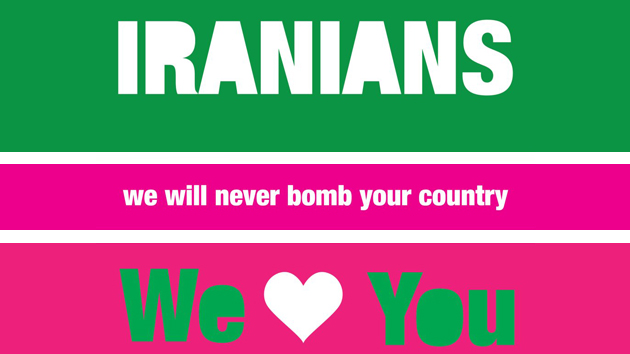BBC World Service recently released the results of a 25-country survey determining how the world’s citizens view 16 countries and their influence on the world. Iran came at the very bottom of the list, with 15% of respondents seeing it as having a positive influence and 59% saying it has a negative influence. That result is far from shocking, seeing as Iran is publicly building up its nuclear capabilities and has the world on edge with a threat of nuclear armament. If you’re American, you’re familiar with Obama’s growing disapproval of Iran and its nuclear program; if you’re a Jewish American, you feel the threat even more strongly, as there is not only strong enmity between Iran and Israel, but Israel also falls within Iran’s missile range. Add to that Ahmajinedad’s refusal to recognize Israel as a state and purported threats toward Israel’s “criminal and terrorist Zionist regime,” his denial of the Holocaust, and his basic hatred of all things Western, and it’s easy enough to conclude that Iran is just one big country of evil.
What’s often not recognized, or is perhaps forgotten, though, is that a country’s government and politics are not actually reflective of the people living in the country. It’s easy to conflate a country with its people, and to forget that the citizens are, essentially, human beings just like us. But a country does not necessarily reflect the people inside it, especially a country led by an oppressive regime where the government is actively working to stifle the many and varied voices of its countrymen. Iran may be a world terror, but the people therein are mostly just people, good and bad, like the rest of us.
Brandon Stanton, the photographer and blogger behind Humans of New York and someone who inspires people (and me) daily with his insight into the beauty inside each person, discovered this when he went to Iran back in December. As he wrote in an article a couple weeks ago for Bettery Magazine, “the people that live in Iran are the exact same people that live in New York City. They’re just wearing different clothes, speaking a different language, and praying in a different way.” Stanton describes his anxiety-wracking trip to Iran and his fears of being arrested simply for being American; his actual trip was uneventful in any dangerous way. Instead, he met “normal” people who are “avid consumers of American culture.” Stanton discovered the simple truth that the anti-Western regime of Iran did not actually speak to the pro-Western people of Iran. Or, as Stanton said more profoundly,
Iran’s government has become one of America’s most hated and feared enemies. A recent Gallup poll showed that 89% of Americans have an unfavorable view of Iran. Clearly, as an idea, Iran is very threatening to Americans. It’s a blank slate on which we project our fears—some founded, some unfounded. But face-to-face, one-on-one, America has no greater friend.
The same idea applies to Israel as well. Israel and Iran are hostile neighbors and have been since the Iranian Revolution of 1979; there has been constant talk of imminent war between the two countries for years. But the people of Israel do not hate the people of Iran. In a TED Talk that has gotten over 1 million views, Israeli graphic designer Ronny Edry discusses his unintended online movement for peace between these neighbors, a social media campaign led by the people of Israel and Iran. In March 2012, Edry posted an image of himself and his daughter on Facebook above the caption, “Iranians…we <3 you.” Overnight the picture took off in a way Edry never expected. Thousands of other Israelis posted similar posters, and soon Iranians began responding in kind. (One Iranian response: “You are my first Israelian [sic] friend. I wish we both get rid of our idiot politicians, anyway nice to see you!”) The movement spread to other countries, with new pages on Facebook being created every day to express love between all imaginable countries and Israel or Iran.
Of course, Andy Samberg started the whole Iran-loving trend. But loving Ahmajinedad might take a bit more effort than loving Iran’s innocent citizens.

